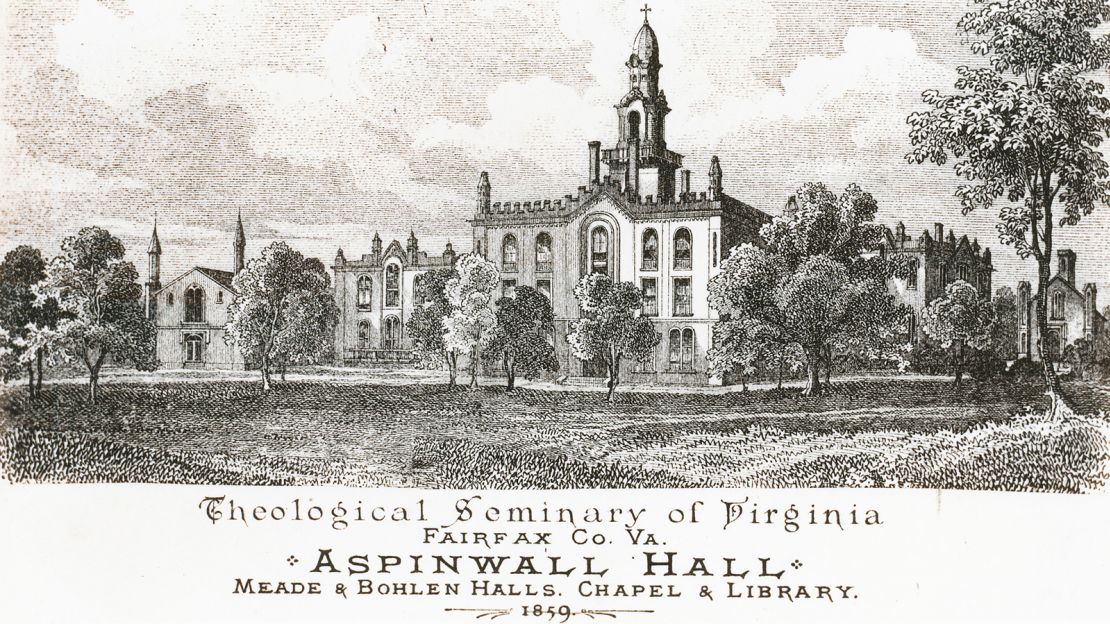An Episcopal seminary in Virginia says it has set aside $1.7 million to pay reparations to the descendants of slaves who worked on its campus, putting the small school at the vanguard of colleges and universities who have been grappling with their roles in slavery and ways of making amends.
Several scholars of reparations said Virginia Theological Seminary is the first institution of its kind to set up a reparations fund, even while other colleges and seminaries have issued reports on their role in slavery or offered scholarships to slave descendants.
“As far as I know this is a first for any academic institution in the United States,” said William A. Darity Jr., a professor and expert on reparations at Duke University.
The Virginia seminary, also known as VTS, said it will set up a task force to find slave descendants who helped build the historic campus in Alexandria, just outside of Washington, D.C. A spokesman said they did not know exactly how many slaves worked at the seminary.
“As we seek to mark Seminary’s milestone of 200 years, we do so conscious that our past is a mixture of sin as well as grace,” said the Very Rev. Ian S. Markham, Virginia Theological Seminary’s dean and president, in a statement.
“This is the Seminary recognizing that along with repentance for past sins, there is also a need for action.”
Founded in 1823, Virginia Theological Seminary is the flagship seminary of the Episcopal Church. Francis Scott Key was a co-founder. The school used slave labor and, after slavery ended, segregated students based on race until 1951, according to Curtis Prather, the seminary’s director of communications.

“Our first African American student was John T. Walker, who was admitted in 1951. Prior to that, African American students studied at Bishop Payne Divinity School,” Prather said. Walker went on to become the first African American bishop of the Episcopal Diocese of Washington.
The seminary’s current enrollment is just under 200 students.
The issue of reparations has become a hot topic in recent years, with more politicians and colleges acknowledging the need to make amends for the sins of slavery and its lasting damage on generations of African Americans. Several Democratic presidential candidates have called for the United States to make reparations to slave descendants.
Darity called public reckonings over slavery, including VTS’ announcement, admirable, but said a piecemeal approach is not nearly enough to account for slavery’s devastating history in the United States.
“What complicit institutions should do is use their resources to craft a lobbying organization that would put before Congress the case for reparations for the black descendants of all persons who were enslaved in the United States,” Darity said.
Thomas Craemer, a scholar of reparations and race relations at the University of Connecticut, agreed that a piecemeal approach is insufficient. But VTS could serve as a role model for larger society and perhaps influence the national debate about a larger federal reparations program, he said.
“What I would highlight is the fact that this is the first time that members of an organization associated with slavery (that is, representatives of the perpetrating side) have taken it on themselves to fund reparations to the direct descendants of the enslaved,” Craemer said.
This March, a group of black students at Princeton Theological Seminary petitioned the school to dedicate a significant chunk of its annual endowment expenditures “for redressing this historical injustice.”
In 2017, the Society of Jesus, known as the Jesuits, held an emotional ceremony at Georgetown University during which the order apologized for selling slaves to pay for the university in the 1830s.
This April, students at Georgetown voted to increase their tuition to benefit descendants of the 272 enslaved Africans. The student referendum is not binding on the university, Georgetown administrators said.
Virginia Theological Seminary is different in that the $1.7 million fund for reparations is already fully funded, said Prather.
“We do want to honor those who worked in this place and we want to provide financial resources for their descendants,” Prather said.
VTS said the fund will also be used to support local congregations with ties to the seminary, to bolster the work of African American graduates and to raise the profile of black clergy in the Episcopal Church.
The Episcopal Church is currently led by an African American, Presiding Bishop Michael Curry, who is the descendant of slaves.
“Though no amount of money could ever truly compensate for slavery, ” said the Rev. Joseph Thompson, whose Office of Multicultural Ministries at VTS will administer the fund, “the commitment of these financial resources means that the institution’s attitude of repentance is being supported by actions of repentance that can have a significant impact both on the recipients of the funds, as well as on those at VTS.”





